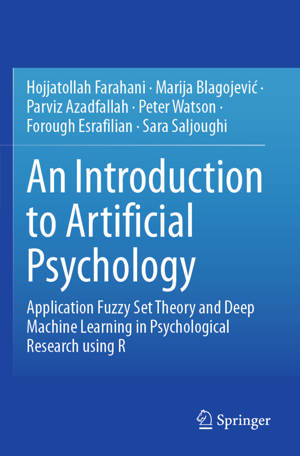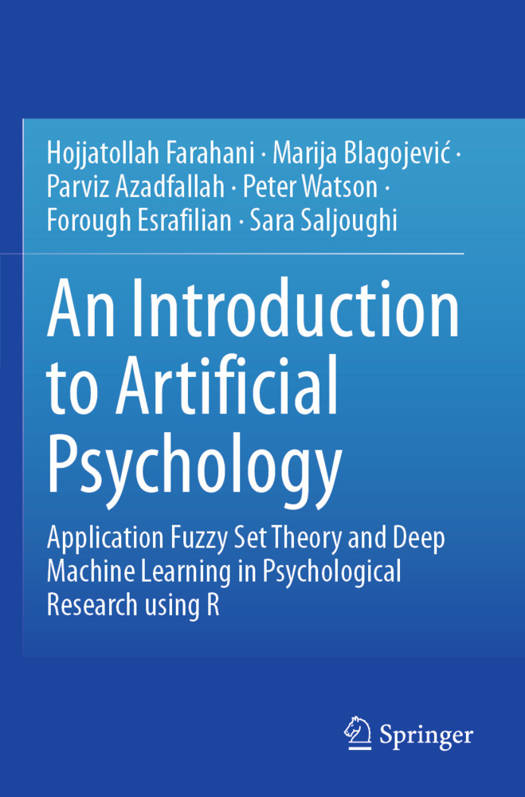
- Retrait gratuit dans votre magasin Club
- 7.000.000 titres dans notre catalogue
- Payer en toute sécurité
- Toujours un magasin près de chez vous
- Retrait gratuit dans votre magasin Club
- 7.000.0000 titres dans notre catalogue
- Payer en toute sécurité
- Toujours un magasin près de chez vous
An Introduction to Artificial Psychology
Application Fuzzy Set Theory and Deep Machine Learning in Psychological Research Using R
Hojjatollah Farahani, Marija Blagojevic, Parviz Azadfallah, Peter Watson, Forough Esrafilian, Sara Saljoughi
Livre broché | Anglais
189,95 €
+ 379 points
Format
Description
Artificial Psychology (AP) is a highly multidisciplinary field of study in psychology. AP tries to solve problems which occur when psychologists do research and need a robust analysis method. Conventional statistical approaches have deep rooted limitations. These approaches are excellent on paper but often fail to model the real world. Mind researchers have been trying to overcome this by simplifying the models being studied. This stance has not received much practical attention recently. Promoting and improving artificial intelligence helps mind researchers to find a holistic model of mental models. This development achieves this goal by using multiple perspectives and multiple data sets together with interactive, and realistic models. In this book, the methodology of approximate inference in psychological research from a theoretical and practical perspective has been considered. Quantitative variable-oriented methodology and qualitative case-oriented methods are both used to explainthe set-oriented methodology and this book combines the precision of quantitative methods with information from qualitative methods. This is a book that many researchers can use to expand and deepen their psychological research and is a book which can be useful to postgraduate students. The reader does not need an in-depth knowledge of mathematics or statistics because statistical and mathematical intuitions are key here and they will be learned through practice. What is important is to understand and use the new application of the methods for finding new, dynamic and realistic interpretations. This book incorporates theoretical fuzzy inference and deep machine learning algorithms in practice. This is the kind of book that we wished we had had when we were students. This book covers at least some of the most important issues in mind research including uncertainty, fuzziness, continuity, complexity and high dimensionality which are inherent to mind data. These are elements of artificialpsychology. This book implements models using R software.
Spécifications
Parties prenantes
- Auteur(s) :
- Editeur:
Contenu
- Nombre de pages :
- 252
- Langue:
- Anglais
Caractéristiques
- EAN:
- 9783031311741
- Date de parution :
- 20-05-24
- Format:
- Livre broché
- Format numérique:
- Trade paperback (VS)
- Dimensions :
- 155 mm x 235 mm
- Poids :
- 417 g

Les avis
Nous publions uniquement les avis qui respectent les conditions requises. Consultez nos conditions pour les avis.






